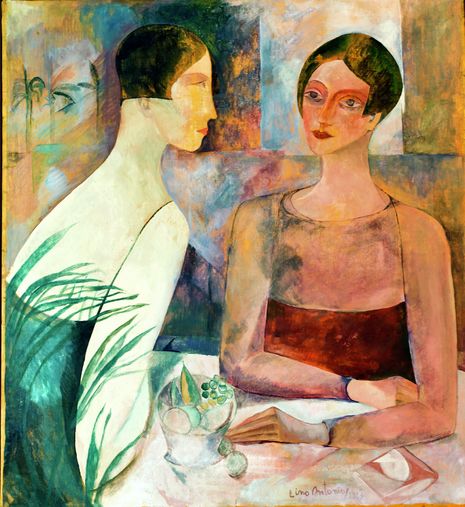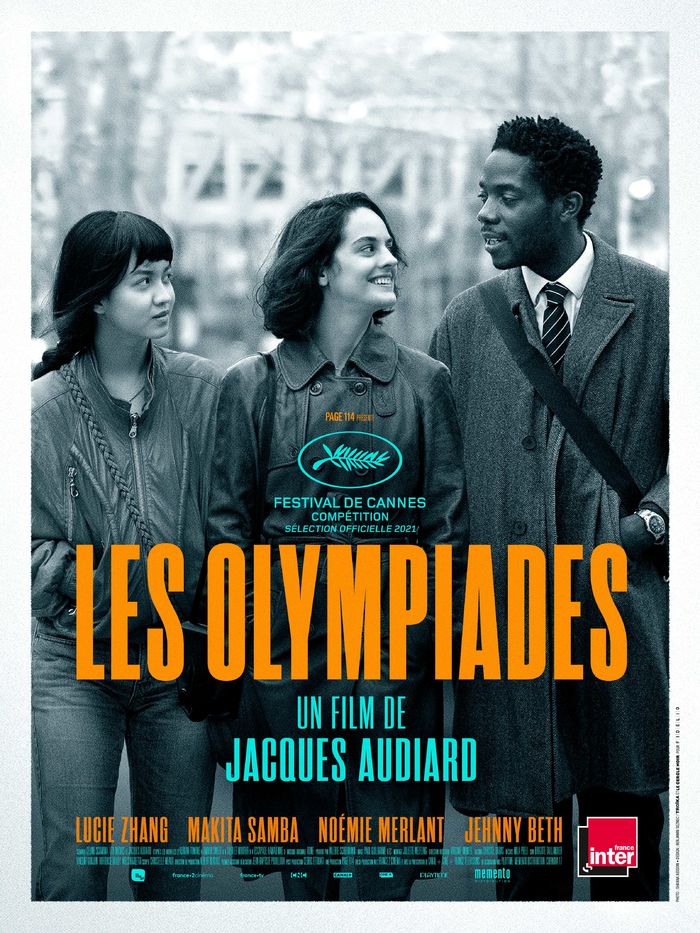Celine Sciamma, the feminist figure of French cinema
In this second instalment of the series ‘Female Gazing’, Juliette Fekkar discusses the French film director’s cinematography and understanding of the female gaze

What is it about Celine Sciamma that makes her revolutionary? Maybe it was her storming out of the 2020 César ceremony with her main actress Adèle Haenel, after alleged rapist and paedophile Roman Polanski won Best Director. But maybe her revolution is quiet, one that takes place in the dark rooms of the cinema.
“Maybe her revolution is quiet, one that takes place in the dark rooms of the cinema”
Céline Sciamma is a woman who films women. Her trilogy of coming-of-age movies Water Lilies (2007), Tomboy (2011) and Girlhood (2014) follows girls trying to figure out who they are as they leave childhood. Sciamma’s characters are ones we are not used to seeing onscreen: black girls who blast music on the metro and get into fights, and a gender non-conforming ten-year-old who makes a play-doh penis to be one of the boys. But the director films her characters with honesty, allowing them to take on a depth and complexity still rare in French cinema. Her Cannes award-winning Portrait of a Lady on Fire (2020) further established her as the leading figure of a new genre of auteure cinema. The movie features the romance between Héloïse, a woman who refuses to get married, and Marianne, a painter hired to paint her engagement portrait.
Sciamma’s movies are not meant as feminist manifestos. Portrait is above all a love story — so much so that it was months after seeing the movie that I realized it had casually erased male characters, a supposed necessity for the period romance genre. By existing outside of sexist tropes, Portrait frees itself from limiting narratives.
“By existing outside of sexist tropes, Portrait frees itself from limiting narratives”
The absence of men creates a safe space where female characters can dream, work and be. Yet Sciamma’s characters still live in a man’s world. A character throws herself off a cliff to avoid an arranged marriage. Another performs an abortion on herself. Women still live with the consequences of the existence of men — but the focus remains female agency. The abortion, far from a tragic choice, becomes a precious moment of sisterhood.
Sciamma’s movies offered answers I didn’t know I needed. After seeing Portrait, I realised how tired I was of women that were written by and for men — that cool girl who is ‘one of the guys’ but also (and mostly) incredibly hot. I was tired of watching male fantasies on screen. The “female gaze” is a term often used by and about Sciamma to describe her movies. A concept built in resistance to the male gaze, it describes the implied masculine subjectivity of Hollywood diegetic choices, the way female bodies are reduced on screen to legs, hips or lips.
For Sciamma, the female gaze relies as much on the choice of narrative as in the camera work. The main sex scene in Portrait is slow, unedited and implicit. The stationary camera makes space for the character’s nudity and intimacy — not the expected fast-paced zooms and upbeat music characteristic of most mainstream sex scenes. The lack of explicit sex is Sciamma’s conscious choice: she refuses to present her characters as objects of desire for the audience. The scene even made me feel slightly uncomfortable. I felt like I was breaching the character’s privacy because the scene didn’t feel like its entire purpose was to be watched.
All movies are a form of fantasy, the imaginative product of a director’s desires, but Sciamma’s cinematography made me realise how much it matters who is fantasising. In Portrait, it is as if the characters are fantasising for themselves — the camera only reflects Marianne’s desire for Héloïse, not the audience’s desire for the characters. Sciamma’s female gaze is therefore constructed through a redefinition of the role of the audience in movies. She doesn’t compromise the characters’ integrity and humanity for the audience’s entertainment. For that, her movies stay with you long after the screen goes dark and the light turns back on.
 News / Hundreds of Cambridge academics demand vote on fate of vet course20 February 2026
News / Hundreds of Cambridge academics demand vote on fate of vet course20 February 2026 News / Judge Business School advisor resigns over Epstein and Andrew links18 February 2026
News / Judge Business School advisor resigns over Epstein and Andrew links18 February 2026 News / University Council rescinds University Centre membership20 February 2026
News / University Council rescinds University Centre membership20 February 2026 News / Petition demands University reverse decision on vegan menu20 February 2026
News / Petition demands University reverse decision on vegan menu20 February 2026 News / Caius students fail to pass Pride flag proposal20 February 2026
News / Caius students fail to pass Pride flag proposal20 February 2026










